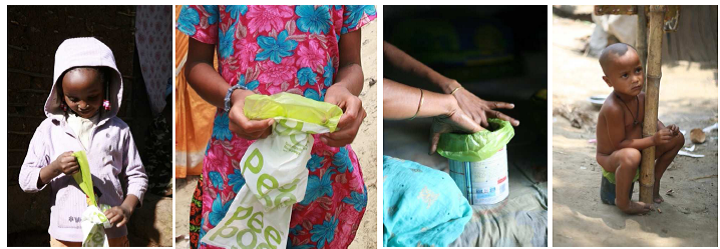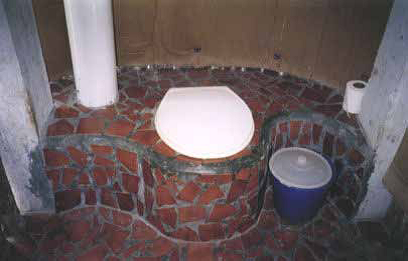WASH - Water, Sanitation, and Hygiene for developing countries
WASH (or Watsan, WaSH) is an acronym that stands for "water, sanitation and hygiene". Universal, affordable and sustainable access to WASH is a key public health issue within international development and is the focus of Sustainable Development Goal 6. In 2015 the World Health Organization (WHO) estimated that "1 in 3 people, or 2.4 billion, are still without sanitation facilities" while 663 million people still lack access to safe and clean drinking water. In 2017, this estimate changed to 2.3 billion people without sanitation facilities and 844 million people without access to safe and clean drinking water (Source: Wikipedia).
Sustainable Sanitation (SUSAN) techniques are a valuable response to WASH challenge; a number of SUSAN techniques are available, from simple solutions aiming to improve hygienic conditions (such as biobags) to more hygienically safe way to manages faces, up to more classical solutions such as sewer and wastewater treatment plant proper for developing countries.
IRIDRA contribute to WASH challenge, collaborating with NGOs and development programs for developing countries, designing low-tech wastewater treatment plants (such as constructed wetlands or lagoons), or helping in the organization of WASH plans. IRIDRA gathered experience in several developing countries (such as India, Honduras, Haiti, Palestine, Vietnam, Tanzania, Sri Lanka) and is able to propose and design SUSAN solutions proper for different needs. IRIDRA was also part of the NaWaTech project, which aimed to develop an integrated approach of sustainable water management in India. Moreover, IRIDRA is a partner of the Sustainable Sanitation Alliance (SuSanA).
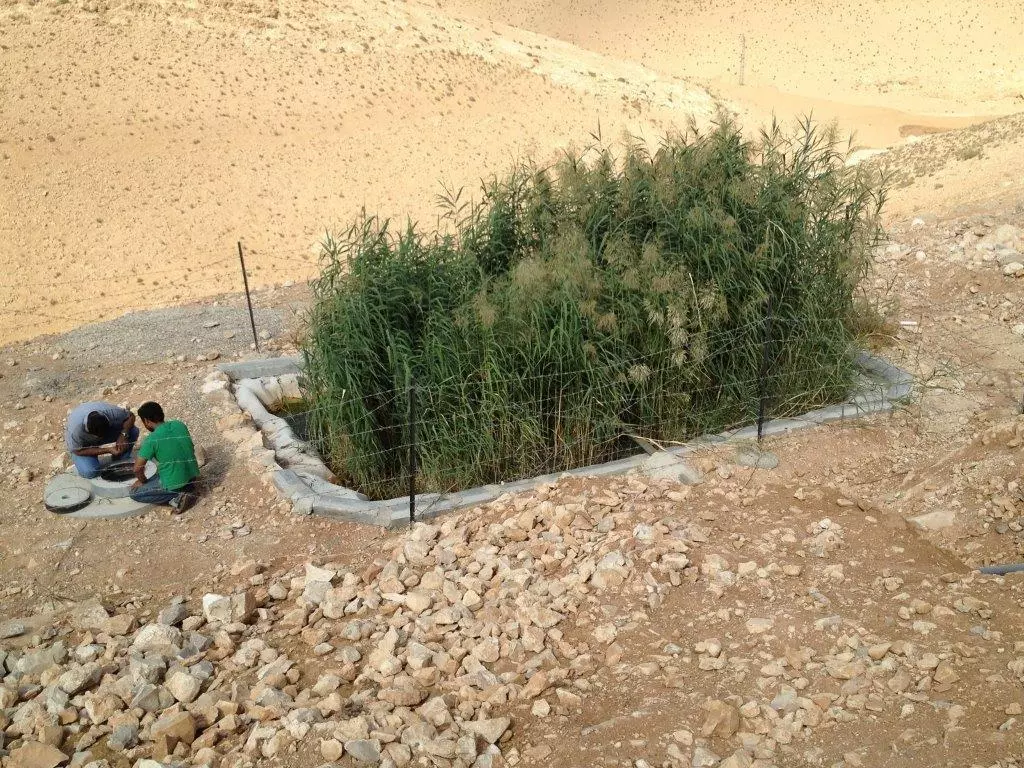
Biobags
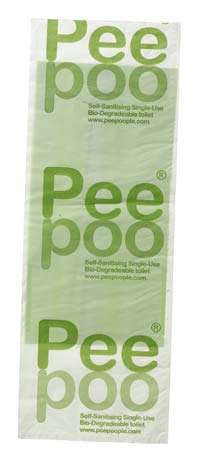 | Come utilizzare i biobag |
Arborlo
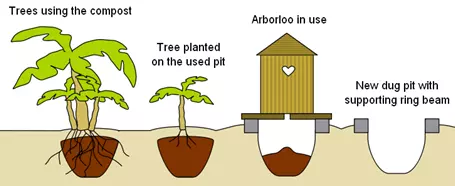
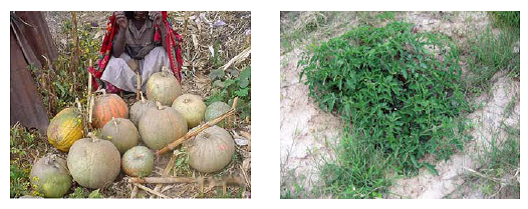
Examples of crops growth with Arbolo: pumpkin Ethiopia (on the left) and tomatoes in Zimbabwe (on the right)
Safe pit latrine emptying
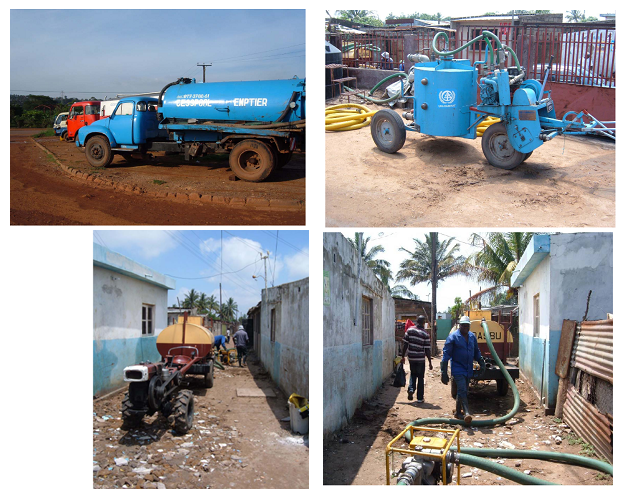
Different trucks for pit latrine emptying
Composting
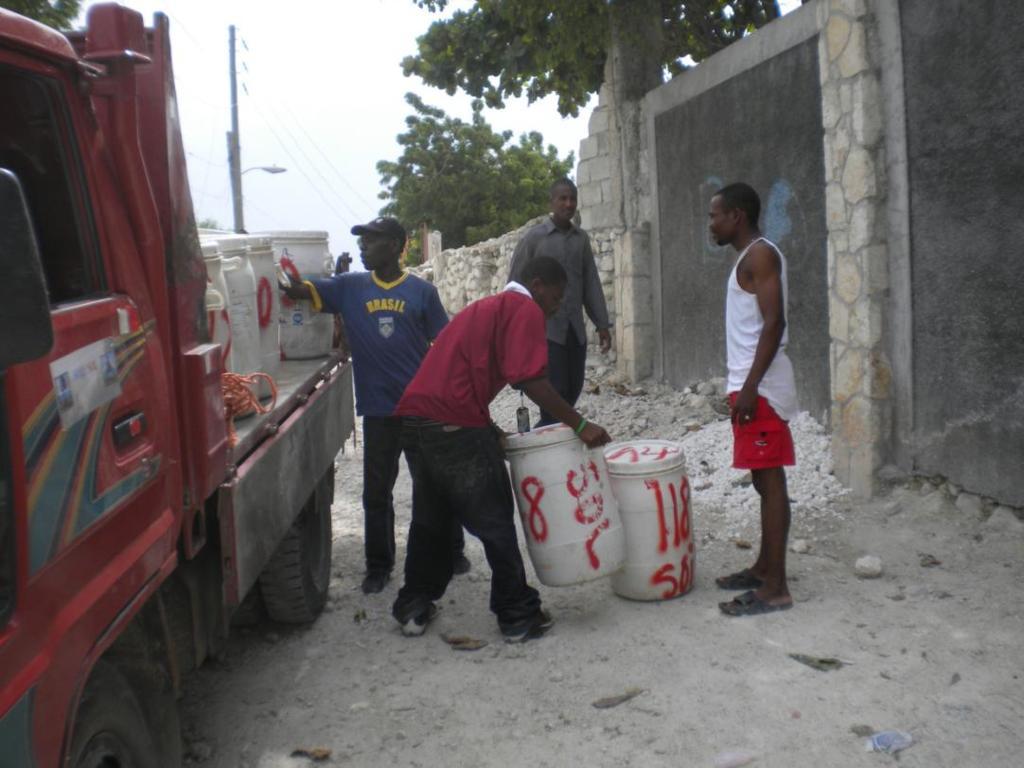
Example of barrel transport for composting
Compost toilet
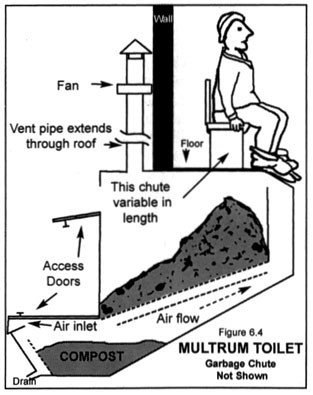 | Compost toilet in a house in Puerto Morelos (Mexico) |
Public biogas toilets
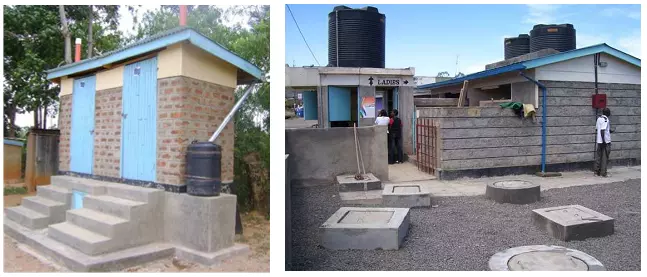
Two examples of public toilets in Kenia with an anaerobic digester and biogas production; the toilets are also equipped with urine diversion and rainwater harvesting systems
Public toilets with septic tanks
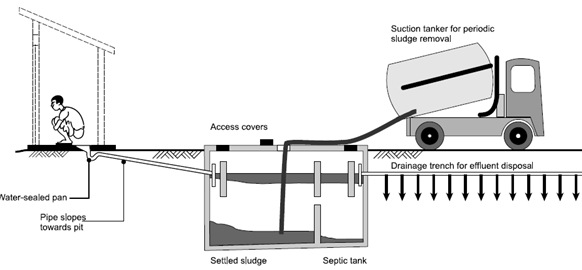
Urine diversion toilet - UD - Urine diversion dry toilet - UDDT
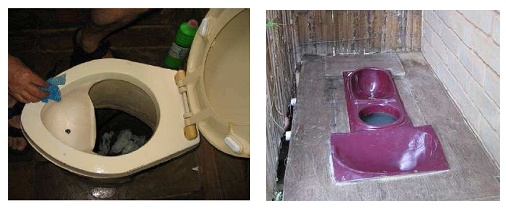
Example of urine diversion toilets
Rainwater harvesting
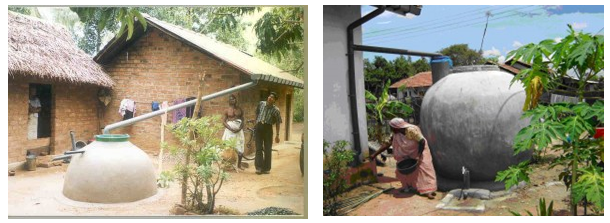
Two rainwater tank in Sri Lanka
Dry detention basin

Example of dry detention system for flood mitigation
Retention pond
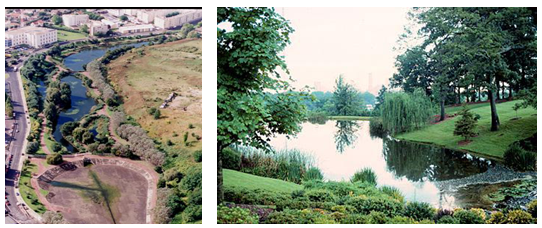
Example of retention ponds for flood mitigation
Green wall for greywater treatment
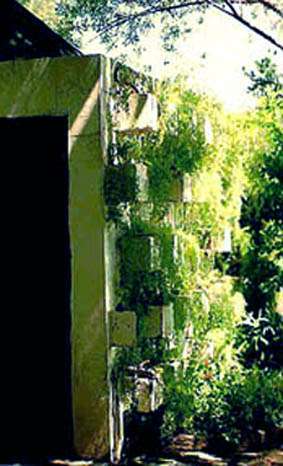
Example of a green wall in Botswana
Constructed wetland for wastewater treatment and reuse
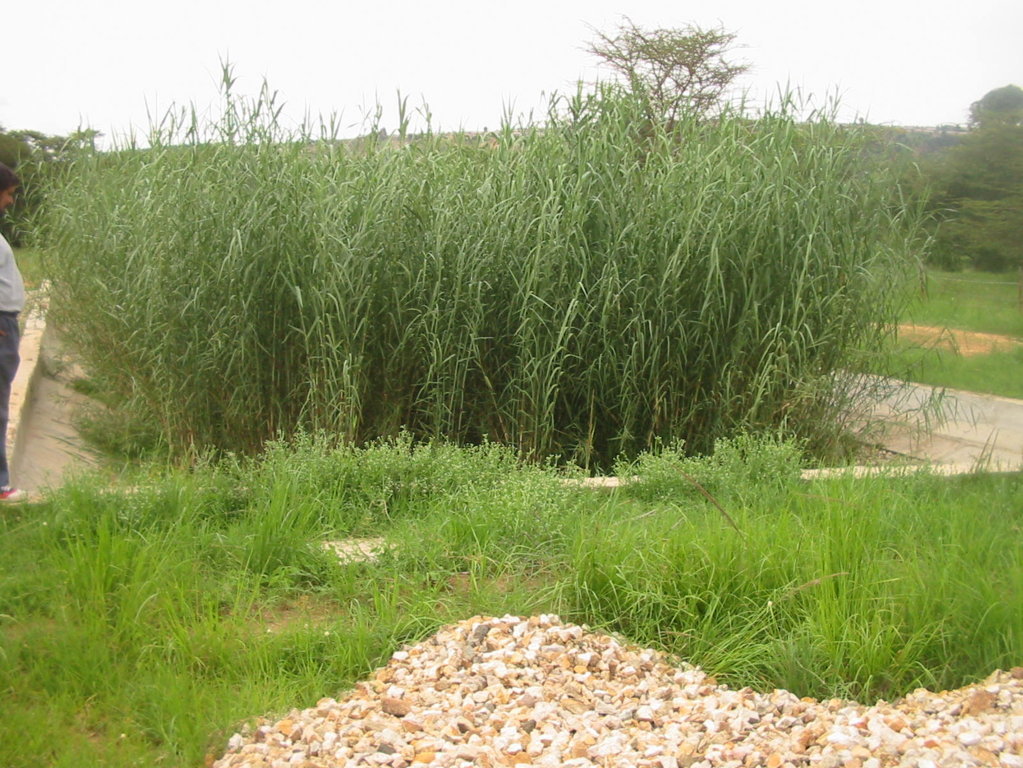
Example of a constructed wetland WWTP serving a small settlement in Tanzania
SDRB - sludge drying reed bed

Example of SDRB at different application scales
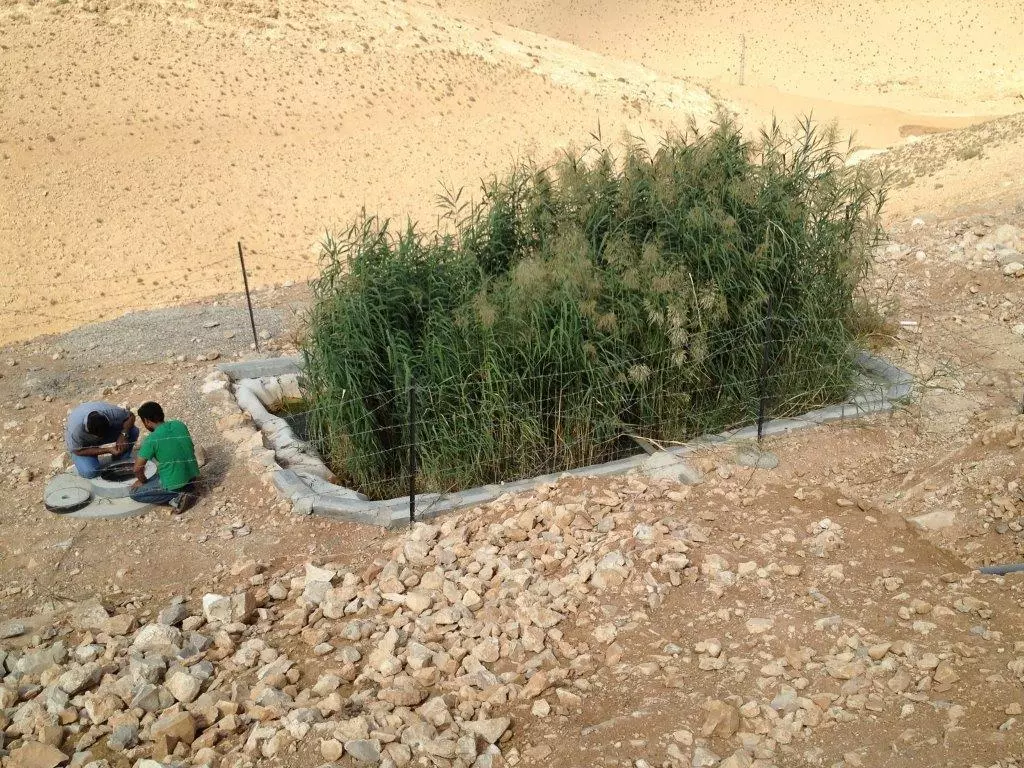
Separation, treatment with a constructed wetland, and reuse of greywater from a Beduin village in Palestine. The treated greywater is reused for irrigation of olive trees and fodder. The nature-based solution was designed by IRIDRA, commissioned by the NGO OXFAM Italy, and funded by EU ECHO, FAO, and Sardinia Region
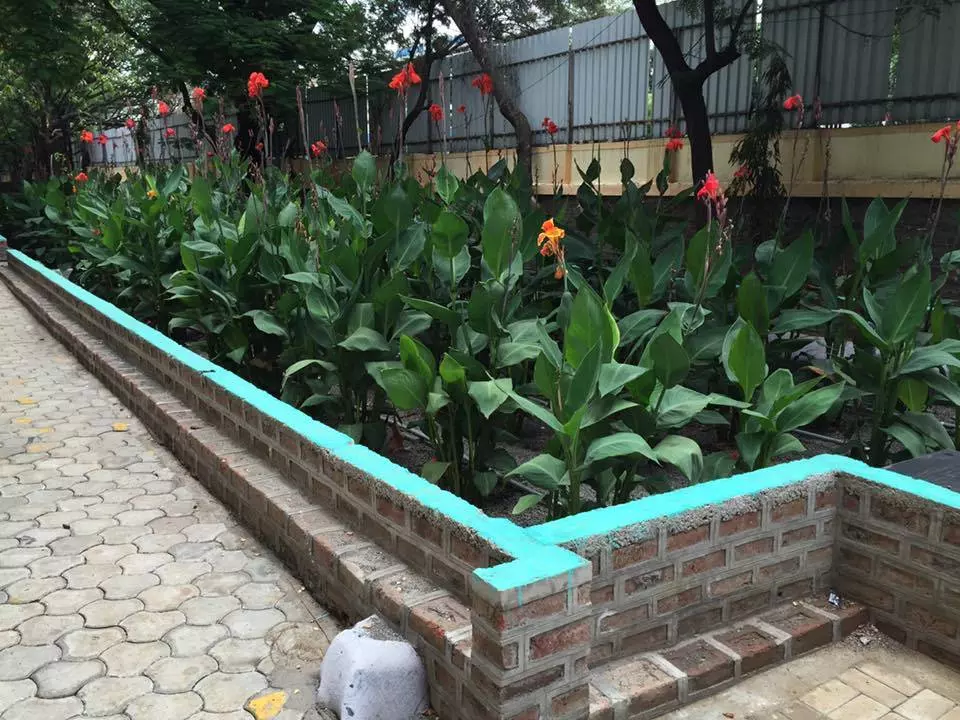
Separation, treatment with a constructed wetland, and reuse of greywater from the Campus of the College of Engineering in Pune (India). Designed by IRIDRA as a case study of the NaWaTech project.
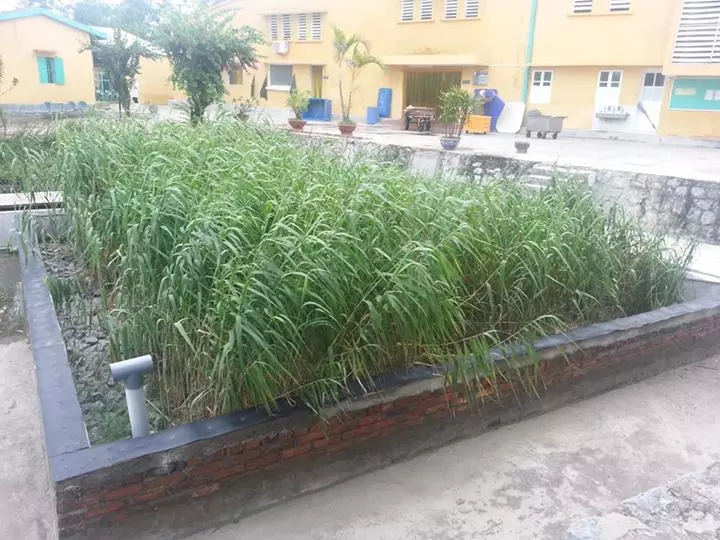
IConstructed wetland system for the treatment of wastewater produced by a fish industry in Yen Hung (Vietnam), designed by IRIDRA.
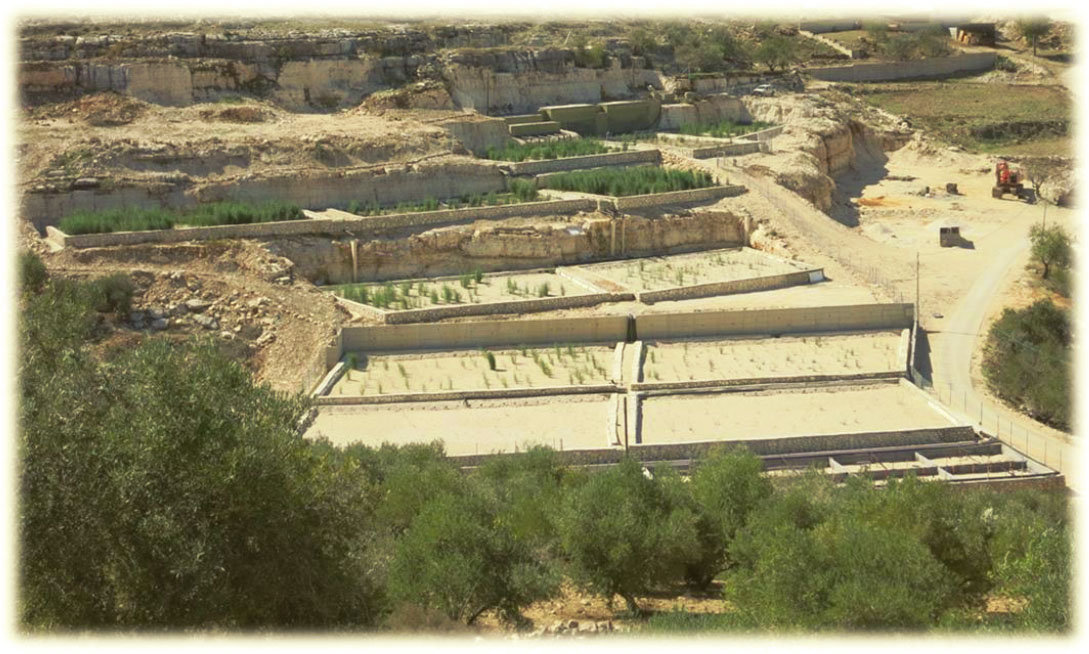
Constructed wetland for treatment of wastewater of Sarra village, Nablus (Palestina), serving 4300 inhabitants. The project aimed to improve the sanitary condition of the village and to reuse the treated wastewater for irrigation of olive trees. Designed by IRIDRA and funded by the European Union.

